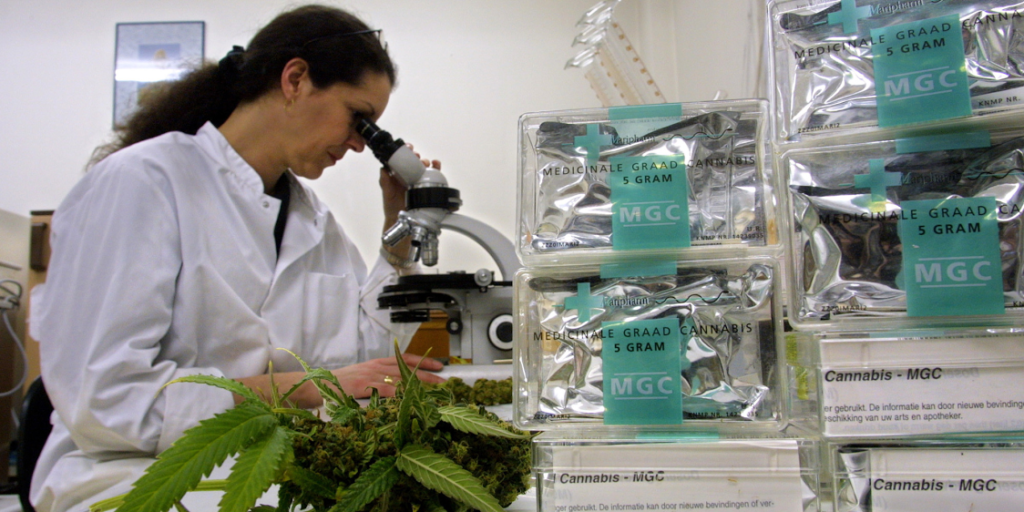

Author: admin
10 Canadian Marijuana Stocks for Your Portfolio
1. Canopy Growth Corp.
Market Cap: $2.94 billion
With its market cap exceeding a billion dollars, Canopy (OTC: TWMJF) is touted as Canada’s first unicorn in the pot market. While the company sells its produce under various brand names, the brand ‘Tweed’ has had the most recognition, thanks to its affiliation with rapper Snoop Dogg. The one-year return for the stock in the OTC market has been 150.57% as of November 8, 2017
2. Aurora Cannabis
Market Cap: $1.23 billion
Aurora Cannabis (OTC: ACBFF) debuted on the Canadian venture stock exchange (TSX) in October 2016. In addition to producing dry cannabis, Aurora received a license to sell cannabis oil in January 2017. It has been around longer in the OTC market, returning 103.5% over a one-year period as of November 8, 2017.
3. Aphria Inc.
Market Cap: $984.99 million
The company calls itself one of the lowest cost producers of marijuana. Aphria (OTC: APHQF) produces dry cannabis as well as cannabis oil of varying qualities and strength. In its last reported financial statement, it sold nearly 852 kgs equivalent of product in three months up to August 2017. Over the last year the stock has gained from $3.43 to a current trading price of $6.48 on November 9, 2017
4. SupremePharma
Market Cap: $212.03 million
The company produces marijuana under the banner of its wholly-owned subsidiary 7Acres. In December, SupremePharma (OTC: SPRWF) announced a private placement financing deal worth CAD 55 million or close to $42 million USD to expand its Hybrid Greenhouse facility and other working capital requirements. The stock’s one-year return is 12.0% as of November 8, 2017
5. OrganiGram Holdings
Market Cap: $251.60 million
This company’s portfolio includes dry cannabis and cannabis oil, along with accessories like vaporizers that can be purchased on its website. Although it promises organic produce, OrganiPharma (OTC: OGRMF) issued a product recall in December 2016 because the products contained pesticides not approved for marijuana growing. As of November 8, 2017 the stock has a return of 29.79% for the one-year period.
6. Emblem Corp.
Market Cap: $76.33 million
Emblem (OTC: EMMBF) is another newly-listed company on the Canadian exchange. A few days after listing, the company announced that it was sitting on a cash pile of CAD 27 million that it was looking to deploy in expansion. Soon after, it got a go-ahead from Health Canada to begin production of cannabis oil. Since December 2016, the stock has fallen from $3.39 to $1.29 on November 9, 2017
7. PharmaCan Capital/The Cronos Group
Market Cap: $364.54 million
This company is in the business of investing in pot growers and companies in the marijuana business. PharmaCan’s (OTC: PRMCF) portfolio currently consists of six companies. It owns two of these companies completely – the rest it holds a minority stake in. Since July 2017 the stock has gained from $1.74 to $2.55 on November 9, 2017
8. Emerald Health Therapeutics
Market Cap: $83.20 million
Emerald Health Therapeutics (OTC: EMHTF) is also a producer of dry cannabis and cannabis oils for medical use based out of British Columbia. New Cannabis Ventures reports that the company raised CAD 10 million in equity from Dundee Capital. The stock has been on an upward trend with a 112.73% return for the one-year period as of November 8, 2017.
9. THC BioMed International
Market Cap: $59.39 million
This is primarily a bio-tech company engaging in research and development on marijuana also dabbling in providing training and solutions to licensed growers. A big boost for THC BioMed (OTC: THCBF) came in December 2016, when it got the green light from the authorities to start shipping marijuana plants for licensed growers across the country. But the upside was short-lived as the company announced in January 2017 that it will be restating its financials, causing the stock to take a hit. The 1-year return as of November 8, 2017 is -8.16%.
10. iAnthus Capital
Market Cap: $26.30 million
This company has taken interest in cannabis based businesses south of the border in four states across the United States. Last December iAnthus (OTC: ITHUF) announced its first complete cannabis related acquisition with the $4.3 million purchase of Colorado based Organix, a medical and recreational pot dispensary. iAnthus’ other investments also include financing and management deals with three other companies, totaling potentially eight licenses for marijuana businesses, nine dispensaries and four cultivation facilities. Over the past year, the stock has been trading with high volatility, falling from $2.10 in November 2016 to $1.64 on November 9, 2017.
7 Marijuana Stocks to Buy That Won’t Burn You
First, it bought Earthgro, a provider of organic potting soil, for $47 million in 1998. Then it purchased General Hydroponics Inc. in 2015 for $130 million, its biggest deal in 16 years, to give SMG a robust product offering to the marijuana industry. “While we think Scotts is paying a full price for the company, it should be a company well-positioned for growth with below-average risk, especially if marijuana continues to be legalized in more states,” said C.L. King & Associates analyst Jim Barrett at the time of the deal.
In the third quarter ended July 1, 2017, Scotts Miracle Gro’s “other sales,” which includes the hydroponics business, grew by 36% year over year to $192.6 million making this segment the company’s second largest. No, it doesn’t break down the portion attributed to hydroponics, but you can bet that it will continue to grow as marijuana legalization picks up speed in both Canada and the U.S. Most importantly you get a very profitable company in which to participate in the marijuana industry.
Marijuana is becoming more mainstream and the companies involved more financially stable. Both the concern over the environment and the lower ongoing costs of LED lights should be enough for Cree to benefit from the switch away from HPS lights.
Cree’s not currently emphasizing this segment of its business, but you can be sure they will if the marijuana industry continues to prosper. One thing to keep in mind about Cree is that it hasn’t made a GAAP profit since 2014. That said, it’s got good cash flow and CEO Gregg Lowe is working hard on the company’s turnaround. By the time it does get interested in the marijuana business, Cree might just be making money on a GAAP basis.
Bringing new drugs to market are never easy and while any cannabinoid-based treatments receive even greater scrutiny, GW Pharma is cautiously optimistic.
“This regulatory submission is a demonstration of GW’s commitment to developing innovative cannabinoid-based treatments that have the potential to address significant unmet medical needs,” stated Justin Gover, CEO of GW Pharmaceuticals. GW Pharma already has one cannabinoid-based treatment called Sativex which treats spasticity issues caused by multiple sclerosis. It’s not available in the U.S. but is available in 30 countries including the United Kingdom. While it’s not currently making money, the recent news is one more step in the right direction.
With a very seasoned group of executives in both pharmaceuticals and agri-business, Aphria shareholders can rest easy knowing their investment is in the hands of total professionals.
As I said earlier, Aphria is one of the lowest-cost producers in Canada. In its Q1 2018 report, Aphria’s all-in cost to produce medical marijuana was CAD$1.61 per gram. Speculation, the retail rate per gram in Canada, will be CAD$10 makes Aphria a supplier of choice for provincial governments like Ontario’s that will be running the retail stores that sell pot. In Q1 2018, Aphria made CAD$1.4 million on CAD$6.1 million in revenue, an operating margin of 23%, 500 basis points higher than in the same period a year earlier. If you like profits, Aphria’s your stock.
Only on the market since April 4 of this year, it’s not for conservative investors looking for a track record.

